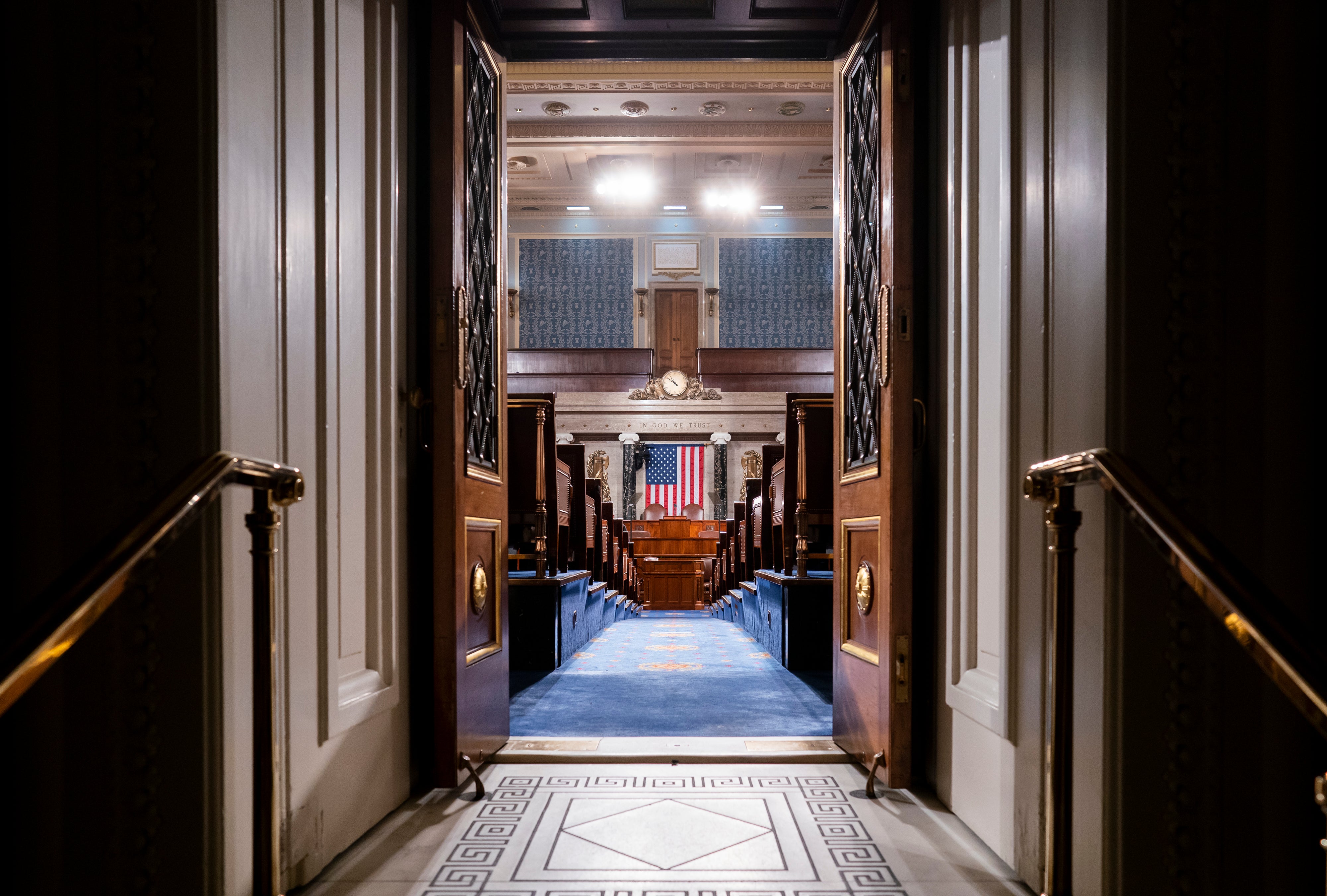What's in Biden speech? Lawmakers race to add priorities
Ahead of President Joe Biden’s address to Congress, lawmakers are intensifying the push to make sure key priorities are included

Ahead of President Joe Biden’s address to Congress on Wednesday, lawmakers are intensifying the push to make sure key priorities are included in the next phase of his massive infrastructure reinvestment program, the American Families Plan.
Biden is expected to unveil parts of the proposal this week, focusing on so-called human infrastructure — child care, health care, education and other core aspects of the household architecture that undergird everyday life for countless Americans. It would be paid for by hiking taxes on very high-income households, in keeping with the president’s vow not to raise taxes on those making less than $400,000 a year.
With details of the plan still in flux, Democratic members of Congress who will be tasked with guiding the legislation to passage are spending the final hours before Wednesday night’s address trying to insert their priorities into the final $1 trillion-plus package.
House Speaker Nancy Pelosi has made it clear she wants to lower prescription drug costs, as well as the cost of buying health insurance under the Affordable Care Act.
Progressives led by Sen. Bernie Sanders of Vermont insist on reducing the Medicare eligibility age, which is now set at 65, and expanding Medicare's benefits to include access to dental, vision and hearing aid care for seniors.
A group of leading centrist and progressive Democrats is meeting Tuesday with the White House to discuss its priority of making permanent the Child Tax Credit, which was increased to as much as $300 a month as part of a COVID-19 relief package. Right now, that benefit expires in 2022 and Biden has suggested extending it to 2025.
“We continue to push,” Sen. Sherrod Brown, D-Ohio, the chairman of the Banking Committee and advocate for a permanent child tax credit, said late Monday evening. “We’re hopeful. We want it to be permanent because it’s so important for so many people’s lives.”
The president’s speech and the rollout of the American Families Plan come as Biden is marking his first 100 days in the White House, a unique moment for congressional action. Democrats narrowly control the House and Senate, giving the president’s party the full sweep of power for the first time in a decade.
While Biden is determined to reach out for bipartisanship, Republicans in Congress have largely panned his proposals as big government spending they vow to oppose. Biden's Democratic allies in Congress are just as determined to ensure they seize this rare alignment of political power to deliver on long-sought priorities.
At her recent weekly news conference, Pelosi telegraphed her priorities to the White House.
“Lowering health costs and prescription drug prices will be a top priority for House Democrats to be included in the American Families Plan,” she said.
Administration officials said Monday that details of the proposal were yet to be finalized. But the package builds on Biden's proposed $2.3 trillion American Jobs Plan, a massive investment in infrastructure that goes beyond roads and bridges to include veterans hospitals, child care centers and other developments.
The White House has portrayed its plan as a Robin Hood-style effort to tax the rich in order to spend on benefits for the middle class and poor.
It’s an argument that the hundreds of billions of dollars controlled by the wealthiest sliver of the country would lead to better results for the country if they were distributed instead to families.
The proposal would extend an expanded child tax credit through 2025, giving parents monthly payments of at least $250 per child. It would provide free community college and paid family leave, among other benefits.
Funding the initiative would be a tax increase on the extremely rich, most notably a near doubling of the capital gains tax rate on incomes above $1 million to 39.6%.
Similarly, the top income tax bracket for those households earning beyond $400,000 is expected to revert to 39.6%, according to a Democratic aide granted anonymity to discuss the planning. That had been the top rate before the 2017 GOP tax overhaul approved by Donald Trump.
Initial reports of an increase in capital gains taxes triggered a stock market sell-off last week. But Brian Deese, director of the White House National Economic Council, tried to assuage voters Monday by saying just a fraction of the country would be paying more.
At a White House briefing, Deese said that only the top 0.3% of taxpayers would owe more. Out of 1,000 taxpayers, that means three would be subject to the higher tax on capital gains — which reflect the profits from a sale of an asset such as a stock or house.
Because capital gains are taxed at a peak rate of 20% now, wealthier individuals who earn most of their income through the financial markets can often pay a lower tax rate than people who think of themselves as middle class and live off their salary.
“We believe that it’s not only fair, but it would also help to reduce the kinds of tax avoidance that significantly undermines trust and fairness in the tax code itself,” Deese said. “The revenue from this provision would help invest directly in our kids and our families and our future economic competitiveness.”
Republican leaders have said they are unwilling to undo the 2017 tax law, their signature achievement of the Trump presidency, to pay for what they view as big spending by Democrats.
No Republicans voted for Biden's coronavirus rescue plan, which was signed into law last month. Last week, Republican senators proposed an alternative infrastructure plan focused on more traditional highway and bridge investments that would be one-fourth the cost, paid for by tolls and other user fees.
Bookmark popover
Removed from bookmarks